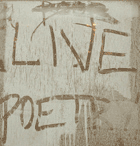(26 May 2005) From today’s Writer’s Almanac:
It was on this day in 1521 that Martin Luther was declared an outlaw and his writings were banned by the Edict of Worms, which made him a hero even more than he already was in Germany—one big reason that Protestantism caught on so quickly.
He was a monk, professor of theology at Wittenberg, and he was disturbed by the way the Catholic Church made money from its people, charging admission to see holy relics, and selling indulgences.
On the eve of All Saints Day in 1517, he posted “95 Theses” attacking indulgences and other church practices, nailed it to the door of his church. The pamphlets caused a great sensation. At the time, they were translated from Latin into German. Hundreds of copies were printed up on a printing press.
In 1520, Luther published even more controversial writings attacking papal authority, and the whole structure of the church. He called the Roman church “the most licentious den of thieves, the most shameless of brothels, the kingdom of sin.”
And so in April of 1521, he was called before a legal assembly of the Holy Roman Empire in the city of Worms—a city where he was greeted by the common people as a hero. He was ordered by the emperor to recant. He said that his conscience was captive to the word of God, and he could not recant anything. Whereupon, he went into hiding, began translating the Bible into German, (a translation still in use today in Germany) which helped unify the many different German dialects into one common language.
Meanwhile, I finished Carol Guess's Switch last night and, man, I really like this book! I still need to re-read the sections I underlined to ponder more, but can report that I really like this writer's observations about class, souls, love, everyday connection, intimacy, chosen families, and the magical powers of everyday objects. I also like the way she strings words together.


No comments:
Post a Comment